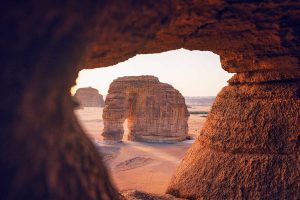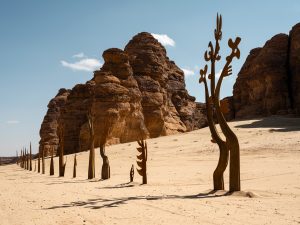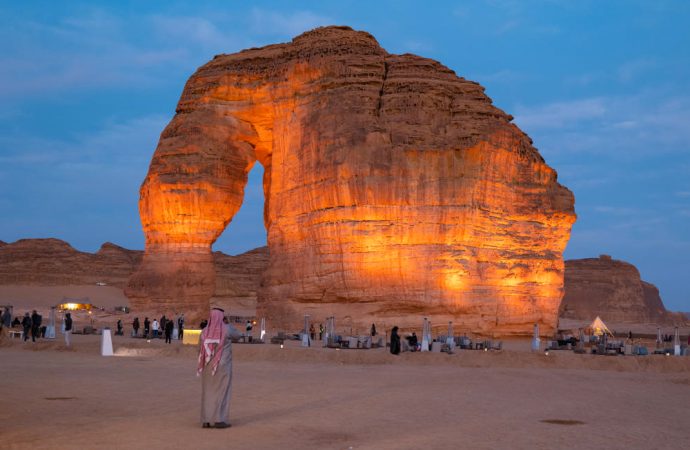Nestled in the northwestern region of Saudi Arabia lies AlUla, an awe-inspiring ancient desert city that has captivated historians, archaeologists, and travelers alike. As one of the most significant archaeological and cultural sites in the Middle East, AlUla offers a unique window into the past, revealing the rich tapestry of human civilization that has thrived
Nestled in the northwestern region of Saudi Arabia lies AlUla, an awe-inspiring ancient desert city that has captivated historians, archaeologists, and travelers alike. As one of the most significant archaeological and cultural sites in the Middle East, AlUla offers a unique window into the past, revealing the rich tapestry of human civilization that has thrived in this arid landscape for millennia. In 2024, AlUla is poised to become a premier destination for those seeking to explore its historical treasures, natural beauty, and cultural heritage.
Historical Significance
AlUla’s history dates back thousands of years, with evidence of human habitation as early as the 6th century BCE. The city was a crucial hub on the ancient incense trade route, connecting the Arabian Peninsula with the Mediterranean and beyond. The Nabataeans, the same civilization that built the famous city of Petra in Jordan, established a significant presence in AlUla, leaving behind an array of architectural marvels, including the iconic rock-cut tombs of Hegra (Madain Saleh

Image by Yandex .com
In 2008, Hegra was designated as Saudi Arabia’s first UNESCO World Heritage site, underscoring its global importance. The site features over 100 well-preserved tombs with intricate facades, offering a glimpse into the Nabataean’s sophisticated craftsmanship and their integration of Hellenistic and Roman architectural influences.
Archaeological Discoveries
Recent archaeological excavations in AlUla have unearthed a wealth of artifacts and structures, shedding light on the region’s diverse cultural heritage. Among the most notable discoveries are the ancient city of Dadan, the capital of the Dadanite and Lihyanite Kingdoms, and the AlUla Old Town, which was inhabited from the 12th century until the early 20th century.
In 2024, ongoing excavations and research are expected to reveal even more about AlUla’s past, providing valuable insights into the trade networks, religious practices, and daily lives of its ancient inhabitants. These discoveries will undoubtedly enhance our understanding of the region’s historical significance and its role in the broader context of Arabian and global history.
Cultural and Natural Attractions
AlUla’s allure extends beyond its archaeological sites. The region boasts a stunning natural landscape, characterized by dramatic sandstone cliffs, lush oases, and expansive desert vistas. The AlUla Oasis, with its verdant date palms and citrus groves, offers a stark contrast to the surrounding desert and serves as a testament to the ingenuity of ancient agricultural practices.
Visitors to AlUla in 2024 will have the opportunity to explore the region’s diverse attractions, including the Maraya Concert Hall, a state-of-the-art venue that has hosted performances by world-renowned artists. The hall’s mirrored exterior reflects the breathtaking desert scenery, creating a harmonious blend of modern architecture and natural beauty.
Adventure enthusiasts can embark on guided hikes through the AlUla mountains, take hot air balloon rides over the desert, or experience the thrill of dune bashing. For those seeking a more tranquil experience, stargazing in the clear desert skies offers a mesmerizing glimpse into the cosmos.
Cultural Initiatives and Events
As part of Saudi Arabia’s Vision 2030 initiative, AlUla is undergoing significant development to promote tourism and cultural exchange. The Royal Commission for AlUla (RCU) has spearheaded efforts to preserve the region’s heritage while creating a sustainable and vibrant tourism industry. In 2024, AlUla will host a series of cultural events and festivals, celebrating the region’s rich traditions and contemporary creativity. The Winter at Tantora Festival, an annual event, features a diverse program of music, arts, and cultural activities, attracting visitors from around the world. Additionally, the AlUla Arts Festival will showcase the works of local and international artists, fostering a dynamic cultural dialogue.
Sustainable Tourism and Conservation
The development of AlUla as a tourist destination is guided by principles of sustainability and conservation. The RCU is committed to preserving the region’s unique environment and cultural heritage, implementing measures to minimize the impact of tourism on the fragile desert ecosystem. Efforts are also underway to engage local communities in the tourism sector, providing economic opportunities and promoting cultural pride. Training programs and initiatives aim to equip residents with the skills needed to participate in and benefit from the growing tourism industry.

Image by Yandex .com
Conclusion
In 2024, AlUla stands as a testament to the enduring legacy of human civilization in one of the world’s most challenging environments. Its rich history, stunning landscapes, and vibrant cultural scene make it a must-visit destination for travelers seeking to explore the wonders of the ancient desert city. As AlUla continues to unveil its secrets and share its stories with the world, it promises to leave an indelible mark on all who venture into its timeless embrace.
















